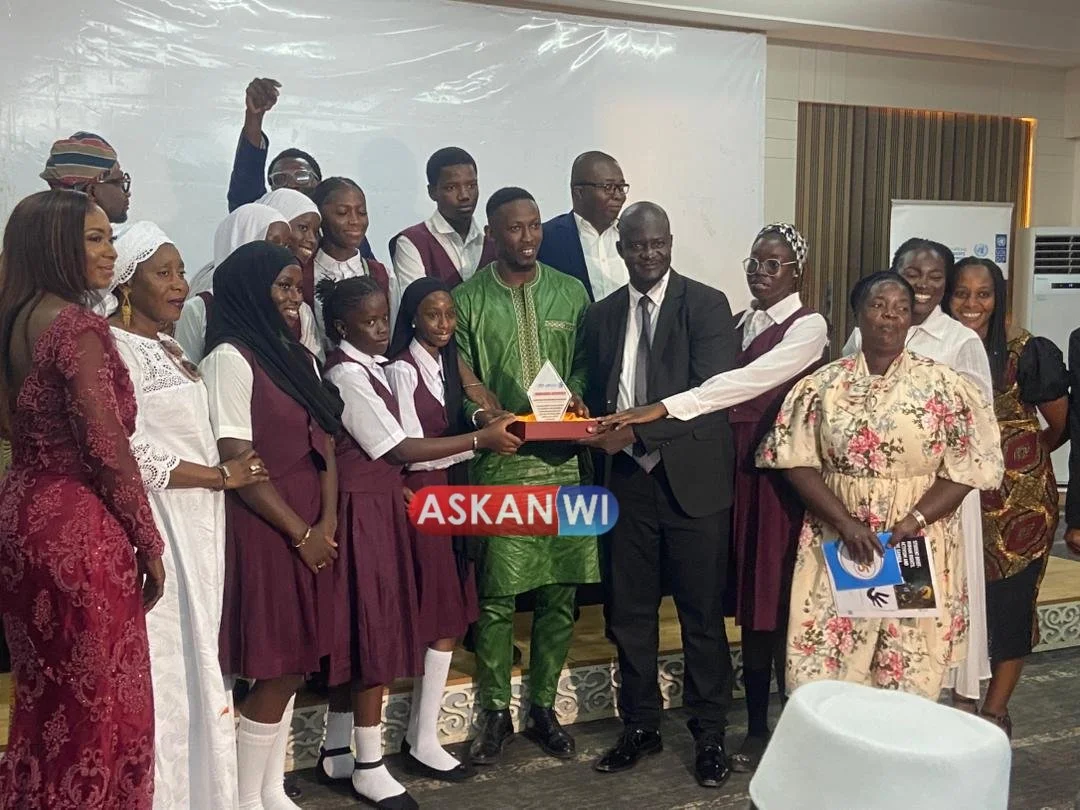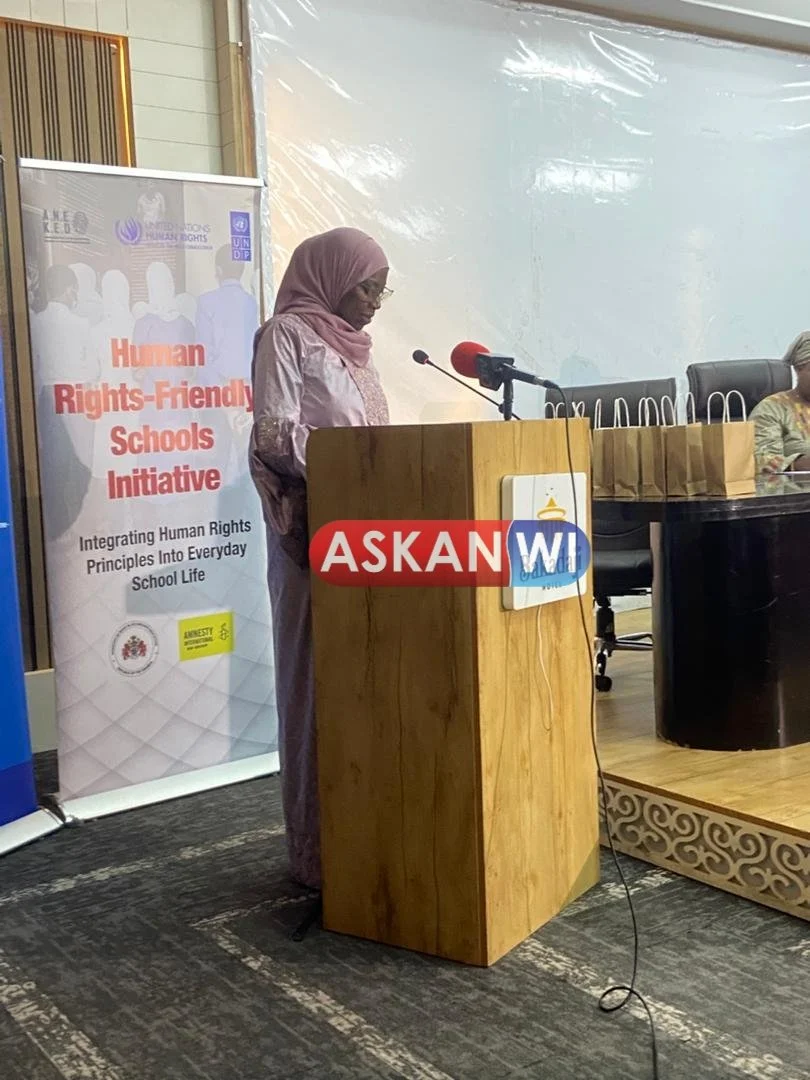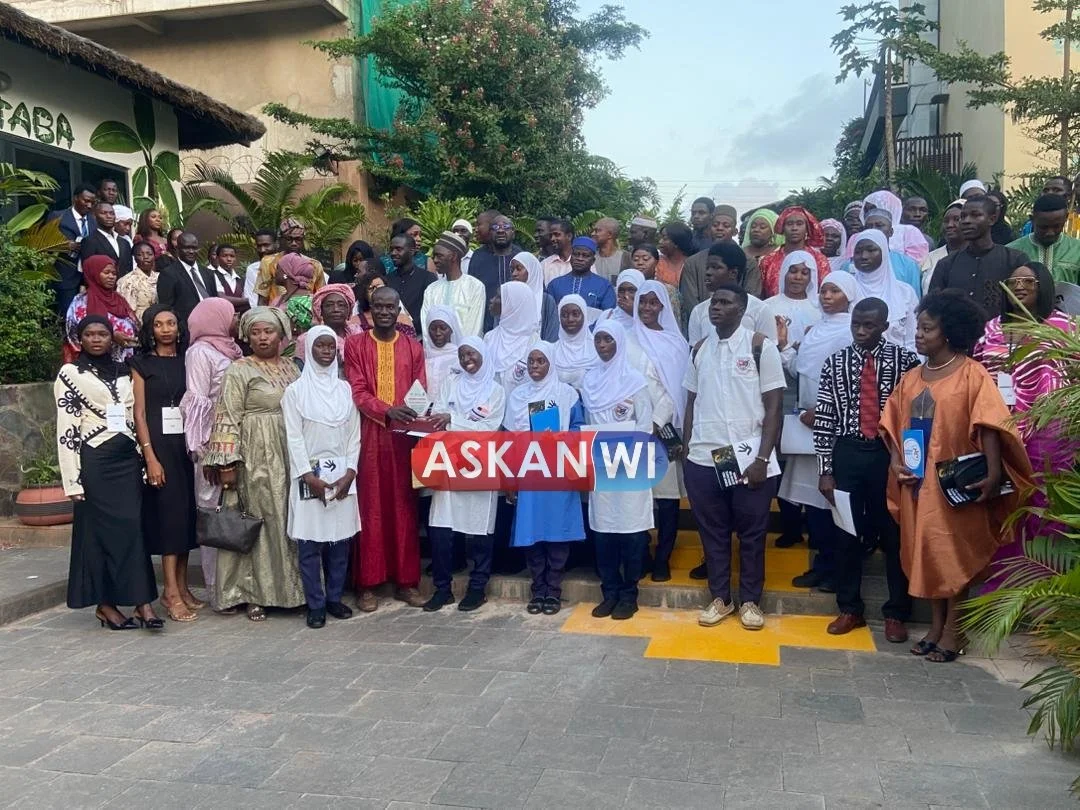Human Rights Friendly School Awards Celebrate a New Chapter in Rights-Based Education
Awardees celebrate human rights award © Askanwi
By Haddy Ceesay
The Human Rights Friendly School (HRFS) initiative—led by the African Network Against Extrajudicial Killing and Enforced Disappearances (ANEKED) in partnership with the Ministry of Basic and Secondary Education (MoBSE) and Amnesty International KM Group—held its inaugural Awards Recognition Ceremony on 30th July 2025 at the Bakadaji Hotel in Kololi. The initiative reflects a key recommendation of The Gambia’s Truth, Reconciliation and Reparations Commission (TRRC): to promote civic education and prevent future rights violations through systemic change.
The event brought together a diverse group of stakeholders, including students, parents, teachers, school leaders, and human rights advocates. Three schools were recognised for their exceptional engagement in the national initiative, which aims to embed human rights principles into school culture, policies, and everyday life:
Charles Fowlis Senior Secondary School
Daddy Jobe Comprehensive School
Roseastou International High School
“A Milestone, Not an End”
In her opening remarks, Amie Njie, Chairperson of ANEKED’s Board, applauded the collective dedication that made the initiative successful.
“We have seen commitment and passion from every stakeholder students, teachers, parents, and school administrators pledging to carry this work far and beyond,” she said. “This ceremony is not the end of the journey. Instead, it marks a critical milestone and the beginning of a longer path.”
She emphasised that human rights are not lofty ideals but lived realities that shape safety, respect, accountability, and opportunity in students’ daily lives.
“Every policy change, mural painted, and ramp built is a statement: rights matters here.”
ANEKED’s Ms Sirra Ndow © Askanwi
Real Impact in Less Than a Year
ANEKED’s Country Director, Ms Sirra Ndow, highlighted the tangible impact of the HRFS initiative across participating schools—achieved in less than a year. Among the major accomplishments were:
Interactive workshops involving students, teachers, and parents to deepen knowledge of rights and responsibilities.
Community clean-up campaigns (sett-settal) that reinforced environmental stewardship and civic pride.
A school garden at Daddy Jobe Comprehensive School, enabling hands-on science learning and sustainability education.
Refurbished toilets, composting training, and school beautification efforts that foster a dignified, student-friendly environment.
Installation of a wheelchair-accessible ramp at Charles Fowlis, advancing inclusive education and aligning with SDG Target 4.A.
Policy reforms on anti-littering, sexual abuse prevention, and waste management—promoting protective and rights-respecting school frameworks.
Group Photo © Askanwi
Student Reflections
Speaking on behalf of Roseastou International High School, student Bintou Chatty shared a moving reflection on how the initiative has changed her perspective—and her school.
“It has been a privilege to participate in this incredible educational project,” she said. “It allowed us to openly discuss the challenges we face and explore practical solutions.”
She spoke of learning about The Gambia’s complex legal and political history—not only its painful chapters but also its promise for progress. She applauded the initiative’s inclusive approach, which brought students, teachers, parents, and civil society groups to the same table.
“When all voices are heard, the school becomes more responsive, inclusive, and successful,” she added. “This initiative is a step forward in promoting unity and accountability.”
Recognizing Rights Champions
The ceremony concluded with the presentation of awards to the three schools, celebrating their efforts in building education spaces grounded in dignity, participation, and inclusion.
The event served as both recognition and a rallying call—a reminder that building human rights-friendly schools requires ongoing collaboration, courage, and commitment. As the movement grows, it promises to shape future generations who not only know their rights—but live them.



